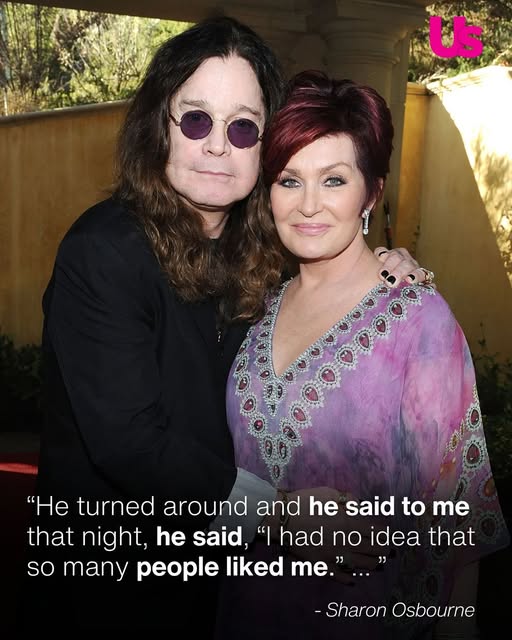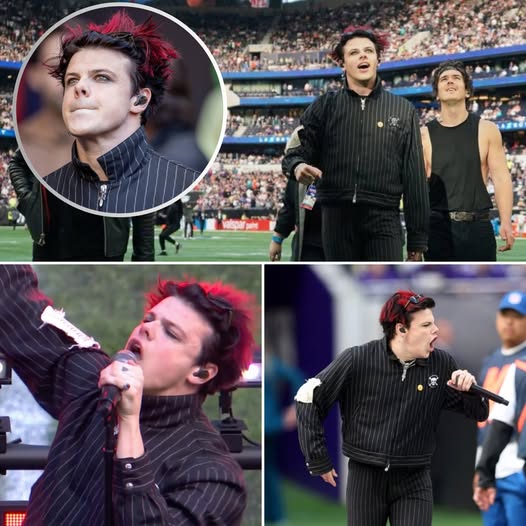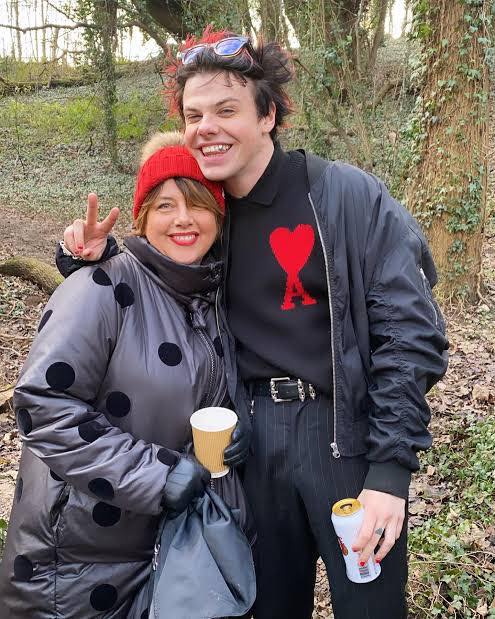When Sharon Osbourne recently opened up about the days leading to the end of Ozzy Osbourne’s legendary journey, she shared a deeply moving reflection that has shaken the music world. Just weeks before his death, Ozzy, the larger-than-life frontman of Black Sabbath, expressed in simple but unforgettable words what his fans meant to him. After the band’s final farewell concert in Birmingham—where their story first began—Ozzy told Sharon something that will echo in the hearts of millions: “They were my family.”
This revelation offers more than just a glimpse into Ozzy’s state of mind in his final days. It captures the essence of an artist who lived for his music, for the stage, and above all, for the people who followed him through every triumph, scandal, and reinvention. In many ways, those few words were Ozzy’s love letter to the fans who sustained him for more than five decades.
A Farewell in Birmingham: Where It All Began
It was both symbolic and poetic that Black Sabbath’s final concert took place in Birmingham, the gritty industrial city where four working-class boys—Ozzy Osbourne, Tony Iommi, Geezer Butler, and Bill Ward—once dreamed of escaping through music.
For Ozzy, the show wasn’t just another gig. It was a full-circle moment, one that reunited him with the roots of his identity. As Sharon recalled, the concert carried a weight of nostalgia and gratitude, but also a quiet sadness. Ozzy knew, as many fans did, that this was not only the end of Black Sabbath’s era but the closing chapter of his own journey.
When the band finished their last song that night, there was no mistaking the emotions on Ozzy’s face. He looked out into the sea of fans—some of whom had been following him since the 1970s—and saw not just strangers, but a family he had built across generations.
Sharon’s Revelation: The Words That Defined a Lifetime
In interviews after his passing, Sharon revealed what Ozzy whispered to her in the quiet aftermath of that farewell show:
“They were my family.”
These four words reveal the soul of a man often portrayed as wild, chaotic, and unpredictable. Behind the “Prince of Darkness” persona was a performer whose very existence was tied to the connection he shared with his audience. The fans were not passive observers in Ozzy’s story—they were his anchor, his mirror, and his motivation to keep going even in the darkest times.
For Sharon, who witnessed his entire journey up close, these words were both heartbreaking and comforting. They showed how much Ozzy valued the people who stood by him through every phase of his career—from the early Sabbath years to his solo reinvention and even his vulnerable battles with health in later life.
The Bond Between Ozzy and His Fans
Ozzy Osbourne’s career was anything but ordinary. He was infamous for shocking antics, outrageous performances, and moments that became rock ‘n’ roll folklore. Yet through it all, his fans never left him.
- The Rebels of the ’70s: For those who came of age in the 1970s, Ozzy was a symbol of rebellion, fronting the band that essentially birthed heavy metal. His raw, unpolished voice carried a generation into a new era of sound.
- The MTV Generation: In the 1980s and 1990s, Ozzy reinvented himself as a solo artist, delivering anthems like Crazy Train that turned him into a household name. His fanbase expanded from metalheads to mainstream rock lovers.
- The Reality TV Audience: In the early 2000s, The Osbournes reality show introduced him to an entirely new generation who saw beyond the stage persona and into the quirky, loving father figure.
Ozzy’s fans grew with him, aged with him, and often passed down their love for his music to their children. This multigenerational connection made his final words even more profound. His audience wasn’t just a crowd—they were the thread weaving his entire life together.
Facing Mortality with Gratitude
Ozzy’s later years were marked by health struggles, from Parkinson’s disease to spinal injuries that limited his ability to tour. For a man who thrived on stage, these challenges were crushing. Yet he continued to express gratitude for the people who kept cheering him on, even when he couldn’t give them the full performances he once did.
In those weeks after the Birmingham farewell concert, Sharon says Ozzy often reflected on the love he received. He knew his time was limited, but instead of bitterness, he seemed to embrace a sense of peace. The fans who had stuck by him gave him the strength to face the inevitable with grace.
The Legacy of Black Sabbath’s Final Bow
The farewell concert wasn’t just about Ozzy. It was also about honoring the legacy of Black Sabbath as a whole. Together, the band members pioneered an entire genre of music that would go on to inspire countless artists—from Metallica to Slipknot, from Nirvana to Billie Eilish.

But for Ozzy personally, the show was something more intimate. It wasn’t about history books or headlines; it was about the fans right in front of him and the lifelong relationship he had with them. Sharon’s revelation makes it clear that Ozzy viewed this performance not as an end, but as a thank-you.
Sharon’s Role: A Witness and Guardian of His Legacy
Sharon Osbourne’s career has been inseparable from Ozzy’s, both as his manager and his wife. She was the one who helped steer him through the highs and lows of fame, addiction, and reinvention. Her sharing of Ozzy’s final words wasn’t just a widow’s tribute—it was a way of ensuring that his connection with his fans would live on, even after death.
She understood that for Ozzy, being remembered not as a star but as a man who loved his fans was the highest honor. And by sharing that message, Sharon has given his supporters something deeply personal to hold on to.
Why These Words Resonate
The simplicity of Ozzy’s final reflection—“They were my family”—resonates because it strips away all the noise of celebrity, scandal, and spectacle. At the heart of every artist-fan relationship lies a bond that is human, raw, and enduring.
- It speaks to loyalty: Ozzy’s fans were with him through controversy, cancellations, and comebacks.
- It speaks to gratitude: Even after decades of fame, he never forgot who kept him there.
- It speaks to love: For a man who struggled with personal demons, the constant love from fans was proof that he was never truly alone.
A Goodbye That Felt Personal
For fans who attended that final concert—or even those who watched from afar—the news of Ozzy’s death was softened by Sharon’s revelation. Knowing that he saw them as family makes his absence a little easier to bear. It transforms the grief into something more communal: a shared sense of belonging to the same extended family that Ozzy cherished.
Carrying the Torch Forward
While Ozzy is gone, his music and legacy remain immortal. Younger generations continue to discover Black Sabbath’s catalog, while classic rock radio keeps Crazy Train and Iron Man alive for new ears. His influence threads through countless modern artists, ensuring that his voice will never fade.
But perhaps the most important way fans can carry his torch is by holding on to that connection he valued so much. To remember that for all the spectacle, Ozzy Osbourne was a man who loved his fans deeply.
Conclusion: A Rock God’s Final Message
Sharon Osbourne’s revelation has given the world a final glimpse into the heart of Ozzy Osbourne. After decades of chaos, controversy, and unparalleled success, the words that mattered most to him weren’t about fame, fortune, or even music. They were about his fans.
“They were my family.”
It is both a farewell and a reminder: that the bond between an artist and their audience can be as deep and enduring as blood ties. For Ozzy, his fans weren’t just listeners; they were the reason he lived, the reason he fought, and the reason his legacy will never die.


